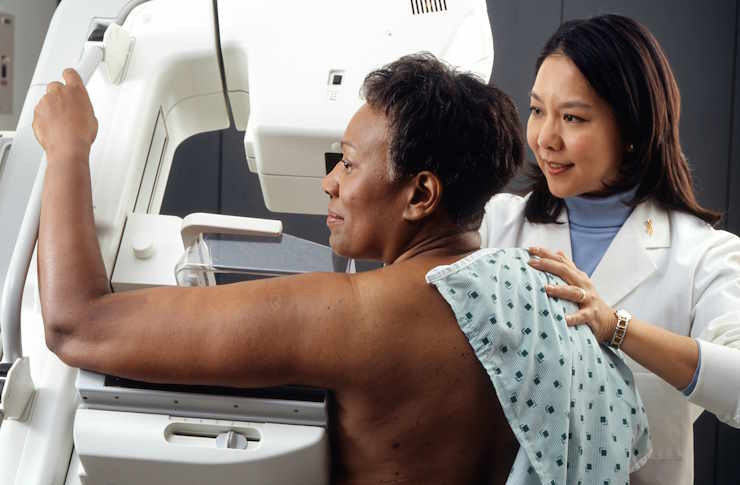Understanding Colon Cancer warning signs and treatment options
Some symptoms may be discussed in relation to colon cancer, including changes in bowel habits, unexplained weight loss, or abdominal discomfort. These signs can also occur in other conditions, and medical evaluation is recommended to determine the appropriate course of care.

What are the early signs of colon cancer?
Recognizing the early signs of colon cancer is vital for timely intervention. Some common early colon cancer symptoms include changes in bowel habits, such as persistent diarrhea or constipation. Individuals may also notice blood in their stool or experience rectal bleeding. Abdominal pain or cramping that doesn’t subside can be another indicator. Additionally, unexplained weight loss, fatigue, and weakness may occur. It’s important to note that these symptoms can also be associated with other conditions, so consulting a healthcare professional for proper evaluation is crucial.
How does colon cancer develop and progress?
Colon cancer typically begins as small, noncancerous growths called polyps within the colon or rectum. Over time, some of these polyps can develop into cancerous tumors. The progression from polyps to cancer usually occurs slowly, often taking several years. This gradual development provides an opportunity for early detection through regular screenings. As the cancer advances, it can grow through the layers of the colon wall and potentially spread to nearby lymph nodes or other organs, a process known as metastasis.
What screening methods are available for colon cancer?
Several effective screening methods can detect colon cancer in its early stages. The gold standard is a colonoscopy, which allows doctors to examine the entire colon and remove any suspicious polyps. For individuals at average risk, colonoscopies are typically recommended every 10 years starting at age 45. Other screening options include fecal occult blood tests, which check for hidden blood in the stool, and flexible sigmoidoscopy, which examines the lower part of the colon. Newer, less invasive methods like virtual colonoscopy and stool DNA tests are also becoming more widely available.
What are the primary treatment options for colon cancer?
Treatment for colon cancer depends on various factors, including the stage of the cancer and the patient’s overall health. Surgery is often the first line of treatment, involving the removal of the tumor and surrounding tissue. For early-stage cancers, this may be the only treatment needed. In more advanced cases, chemotherapy may be recommended to kill any remaining cancer cells or shrink tumors before surgery. Radiation therapy is sometimes used, particularly for rectal cancers. Targeted therapies and immunotherapy are emerging treatment options that show promise in certain cases of colon cancer.
How can lifestyle changes impact colon cancer risk and recovery?
Adopting a healthy lifestyle can play a significant role in reducing the risk of colon cancer and improving outcomes for those undergoing treatment. A diet rich in fruits, vegetables, and whole grains, while low in red and processed meats, has been associated with lower colon cancer risk. Regular physical activity, maintaining a healthy weight, and limiting alcohol consumption are also beneficial. For those recovering from colon cancer, these lifestyle factors can support overall health and potentially reduce the risk of recurrence. Quitting smoking is crucial, as tobacco use is linked to an increased risk of colon cancer and other health issues.
What are the latest advancements in colon cancer treatment?
Recent advancements in colon cancer treatment offer new hope for patients. Precision medicine approaches, which tailor treatment based on the genetic profile of the tumor, are becoming more common. Immunotherapy, which harnesses the body’s immune system to fight cancer, has shown promising results in certain types of colon cancer. Minimally invasive surgical techniques, such as laparoscopic and robotic-assisted surgeries, can lead to faster recovery times and fewer complications. Clinical trials are ongoing to explore new targeted therapies and combination treatments that may further improve outcomes for colon cancer patients.
| Treatment Option | Description | Typical Cost Range (USD) |
|---|---|---|
| Surgery | Removal of tumor and surrounding tissue | $15,000 - $50,000 |
| Chemotherapy | Drug treatment to kill cancer cells | $30,000 - $150,000 per course |
| Radiation Therapy | Use of high-energy rays to destroy cancer cells | $10,000 - $50,000 |
| Targeted Therapy | Drugs that target specific cancer cell functions | $50,000 - $200,000 per year |
| Immunotherapy | Treatment to boost the body’s natural defenses | $100,000 - $300,000 per year |
Prices, rates, or cost estimates mentioned in this article are based on the latest available information but may change over time. Independent research is advised before making financial decisions.
In conclusion, understanding the warning signs of colon cancer and being aware of available treatment options is crucial for early detection and effective management of the disease. Regular screenings, adopting a healthy lifestyle, and staying informed about the latest advancements in colon cancer care can significantly improve outcomes. While a cancer diagnosis can be overwhelming, the evolving landscape of treatment options offers hope and improved quality of life for many patients.
This article is for informational purposes only and should not be considered medical advice. Please consult a qualified healthcare professional for personalized guidance and treatment.




